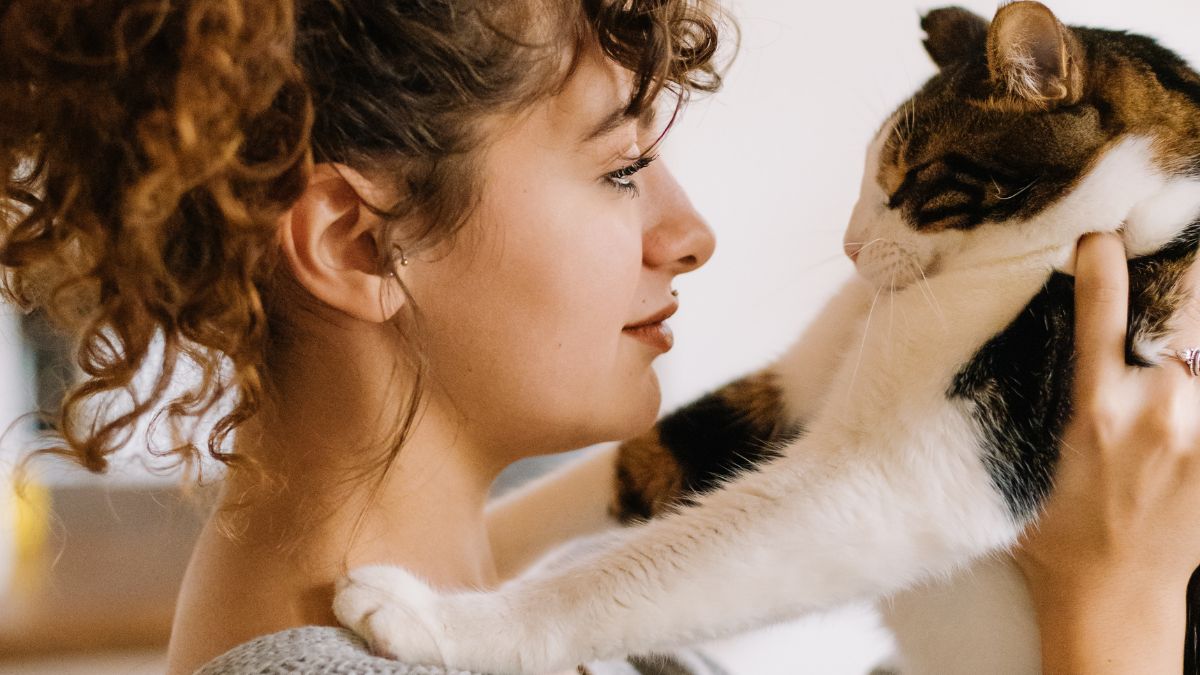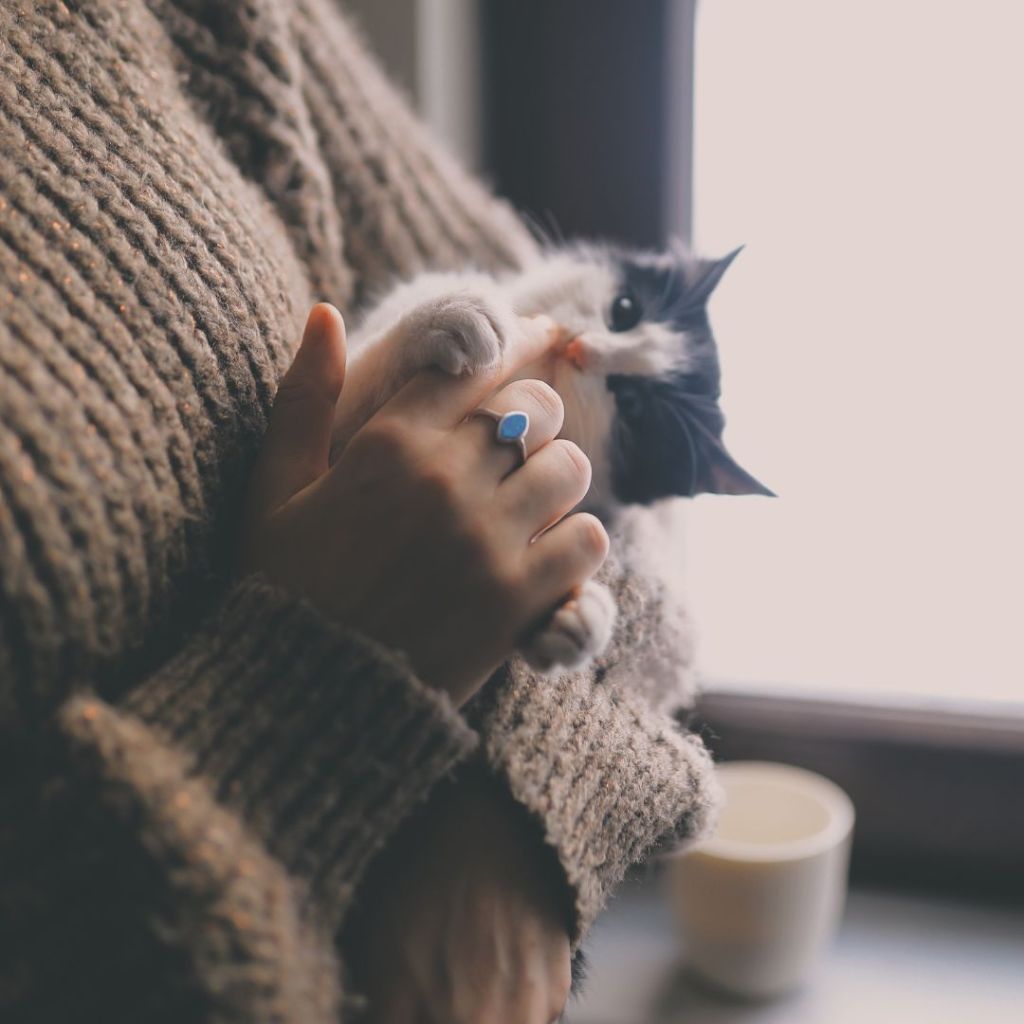
Cat Sitter Challenges: How to Deal With the Major Demands of Cat Sitting
Jun 21 2023.
Spending your time with cats (and earning money while you do it) is without a doubt the most amazing job in the world. But, it’s likely you’ll face a few challenges along the way, even with the most purrfect furry clients. It never hurts to be aware of any major challenges you might face as a cat sitter. Below, Cat in a Flat shares a few cat sitting perks and the challenges that may come with them.
Table of contents
1. Should a cat sitter maintain a routine?
One of the major pros of cat sitting is that, for the most part, you can make your own hours. You’re free to determine when to start your day, and you can organize your cat sitting visits around your personal schedule. However, while you are technically your own boss, you still have your furry bosses to answer to!
Most cats love routine, and it can be stressful to have that disrupted. While some cats may adjust easily to a change, others might need you to keep a schedule. So yes, as a 5-Star cat sitter you should maintain the daily routine of your cat client. The routine and schedule should be agreed at your initial Meet & Greet. Some kitty clients may require you to feed them or give them medication at specific times. Even if this isn’t the case, you should always ask your furry client’s paw parents if they’d like you to visit at a certain time of the day. It varies from feline to feline and their paw parents will always appreciate it when you ask!

Paw Parent Tip: Cat sitters usually get booked out far in advance of major holidays. So, aim to start looking for a cat sitter at least a few weeks before your trip, if not sooner. While finding last minute cat care is not impossible, you may struggle to find a cat sitter who has the flexibility in their schedule to accommodate to your cat’s unique routine.
2. How to care for different pet personalities
As a cat sitter, you’ll get to meet a variety of furry friends and their wonderful owners. No two days or clients will be the same. While this can be exciting, it’s sometimes also a challenge for a cat sitter to deal with so many different personality types. After all, each kitty client you have is unique and their personalities and needs can vary widely.
Upbringing, breed, and lifestyle can all provide different challenges for a cat sitter. Some cats may be shy and hide away, while others might behave aggressively when upset. Make sure you understand how best to approach a new cat for the first time, and never force your kitty clients to interact with you. You will also need to adjust to different lifestyles. For example, caring for an outdoor cat can be very different from looking after an indoor feline. Read up on common hazards for cats inside and out of the home so you’re prepared for any type of furry client.

Cat Sitter Tip: Don’t be shy about asking your human clients plenty of questions about their kitties. Keep a notebook on hand (or make notes in your phone) so you can keep track of the different requirements and personality quirks of each feline. And try to avoid booking clients without doing a free meet and greet first. This will give you (and them) the chance to find out if you’re compatible with the kitty’s personality and needs.
3. What do I do in a cat sitting emergency?
One of the major challenges of working as a cat sitter is that you can’t call in sick. You also need to have the flexibility to deal with any emergencies that may come up while your client’s paw parents are away. Cat sitting is a high responsibility job—people are entrusting their homes and treasured furry family members into your care! This level of responsibility can be a challenge for cat sitters.
- Make sure you read up on the basics of feline first aid so you know what to do in case Mr Whiskers falls ill or is injured.
- If your furry friend spends time outdoors in a garden or patio, discuss with the owners what you should do if they manage to escape.
- Always request that your human clients leave a list of emergency numbers.
- This should include the kitty’s vet and a local friend or family member who can help you out if something goes wrong.
- And be prepared for flight delays, last-minute visit requests, and other emergencies that may crop up at any point.
- As long as you react quickly and calmly to any of these scenarios, you’ll be fine!
If you are a cat sitter with Cat in a Flat, you can always contact the Cat in a Flat support team for emergency assistance

Paw Parent Tip: Always prepare your pet sitter as best you can for any sort of emergency. List down any medications and health-related issues your feline may have, as well as specific instructions on what to do in case of an emergency. Place any essential documents (such as health records) in an easily accessible location. And always make sure your cat sitter feels comfortable directly communicating with you and your emergency contacts if something does go wrong.
4. Is cat sitting an active job?
Cat sitting is a very active job that doesn’t just involve cuddling cats! You’ll be bending over to clean litter boxes (or change the litter), playing with your feline clients, and doing other tasks and chores—such as watering plants—around your clients’ homes. The activity level will vary from one client to the next and according to each kitty’s energy levels.
You will also be travelling to and from the cats home on a daily basis. So whether you choose to walk, ride a bike, drive or take public transport, this will require you to stay active and organised. On certain occasions such as Christmas, public transport can be challenging so always make sure you have a back up plan to get to Mr Whiskers.
Cat sitting requires a great deal of organisational skills, being a good judge of yourself and your daily chores and a great communicator that can clarify or even foresee unplanned situations.
Cat Sitter Tip: Try to avoid overbooking yourself, or booking feline clients that live too far apart. At the end of every visit, spend some quality time relaxing with your furry friends. Even just spending time in the same room with Mr Whiskers can release Oxytocin in your brain, making you feel happy and well-balanced!
5. Challenges of cat sitter communication
As you’ve probably noticed, good communication is a key part of being a great cat sitter. Aim to establish clear guidelines on the best ways to communicate with your furry client’s owners. Should you call them if there’s an emergency? Do they want multiple texts and photos every day? Or do they prefer a quick daily message just to let them know all is well?
When you meet them, make sure expectations are clearly defined and they know exactly what tasks you will perform. Discuss the scope of what you will offer and any fee increase or charges for extra services. Be careful about being too vague as this leaves the door open to different interpretations of what your human clients can expect. Also, don’t be shy about setting some boundaries so you can manage your client’s expectations. While this can be a challenge at times, it’s important as a cat sitter to manage your own well-being so you can provide quality service. It’s all about striking the right balance!
Hopefully these tips will help you to maneuver the challenges of working as a cat sitter. Looking for more cat sitting tips? Check out our blog posts on how to be a 5-star cat sitter and what to do if a cat goes missing.
- #catinaflat
- #catsitting
- #house sitting
- cat sitter service
- cat sitting
- Katzenbetreuer
- Katzenbetreuung
- Katzensitter
- Katzensitter Service
- Katzensitter Tipps
